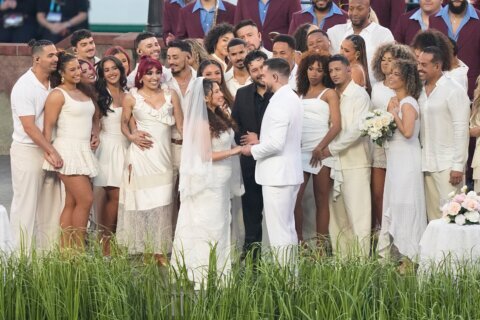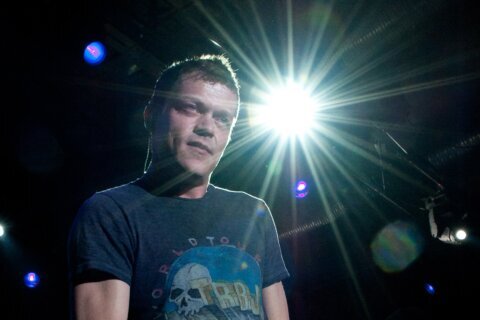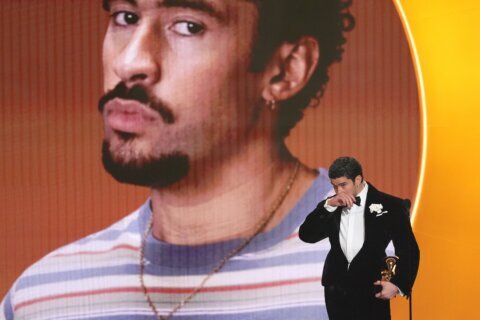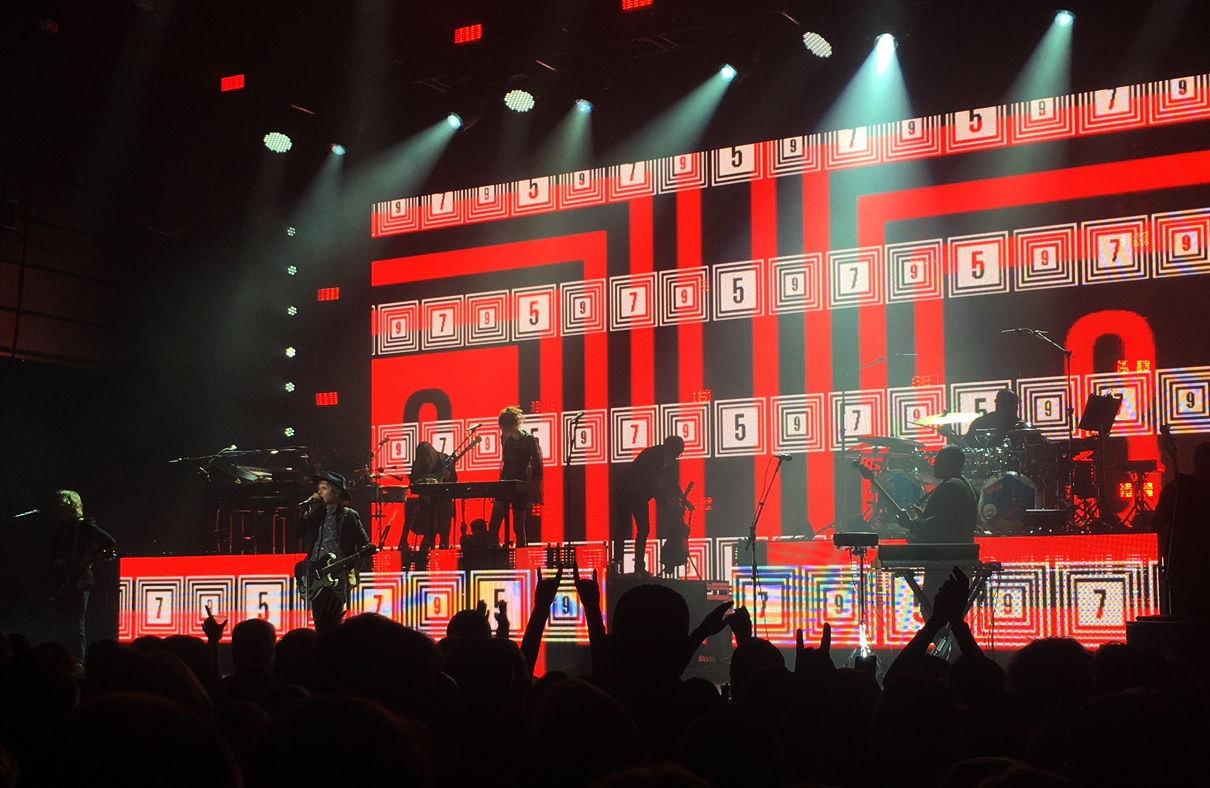
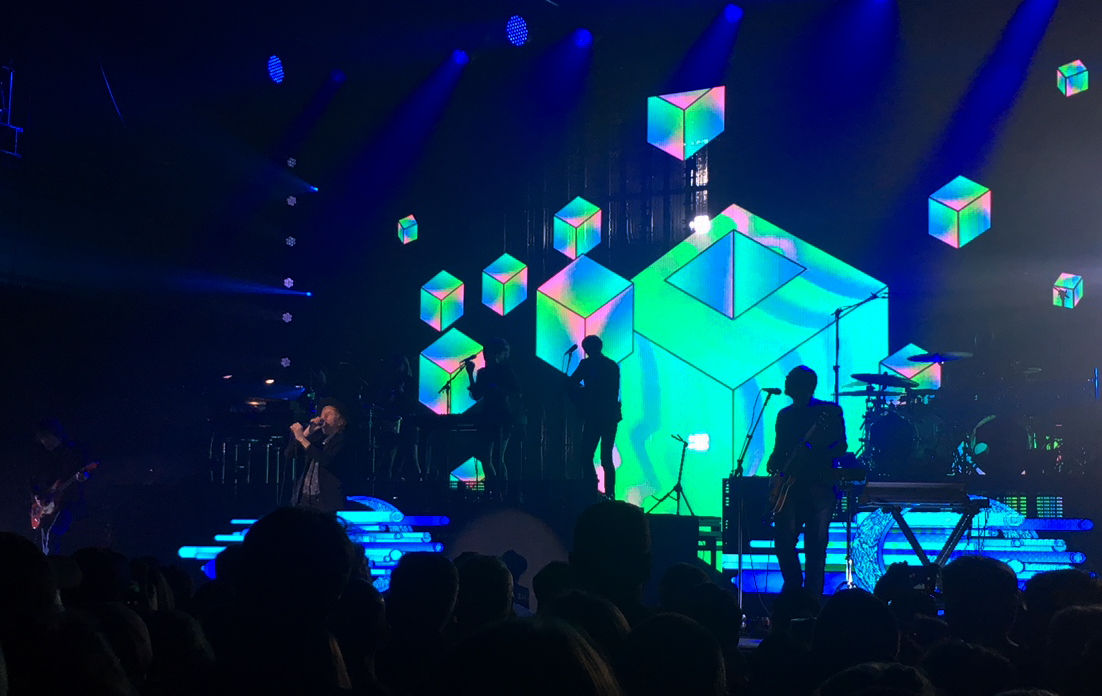
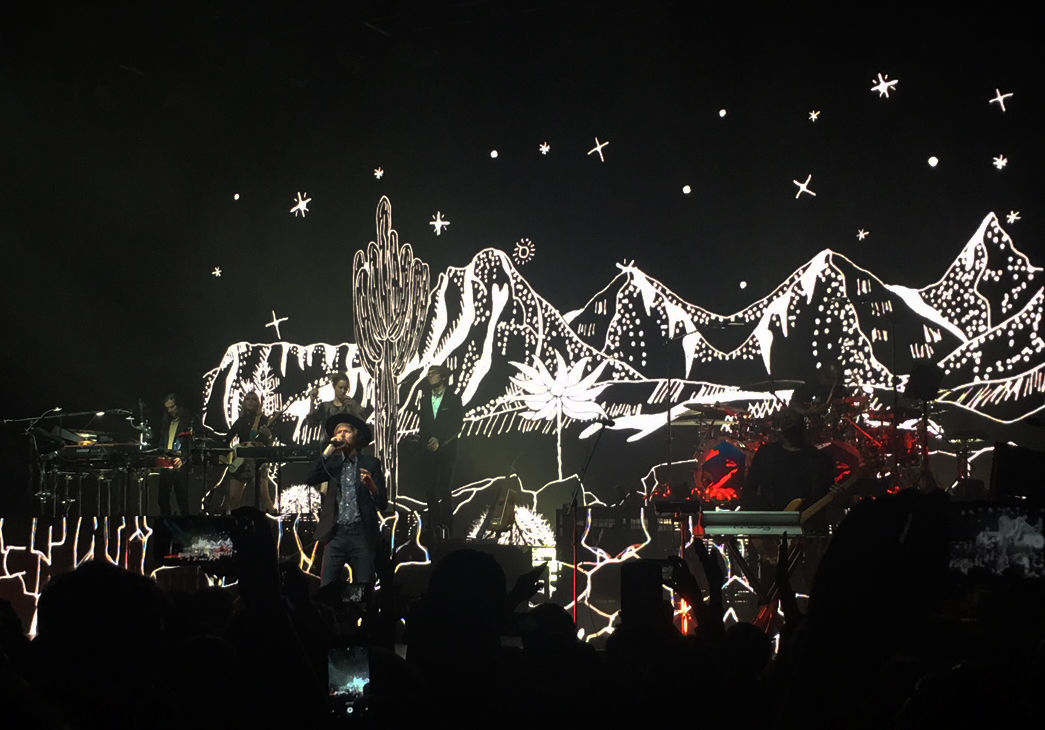
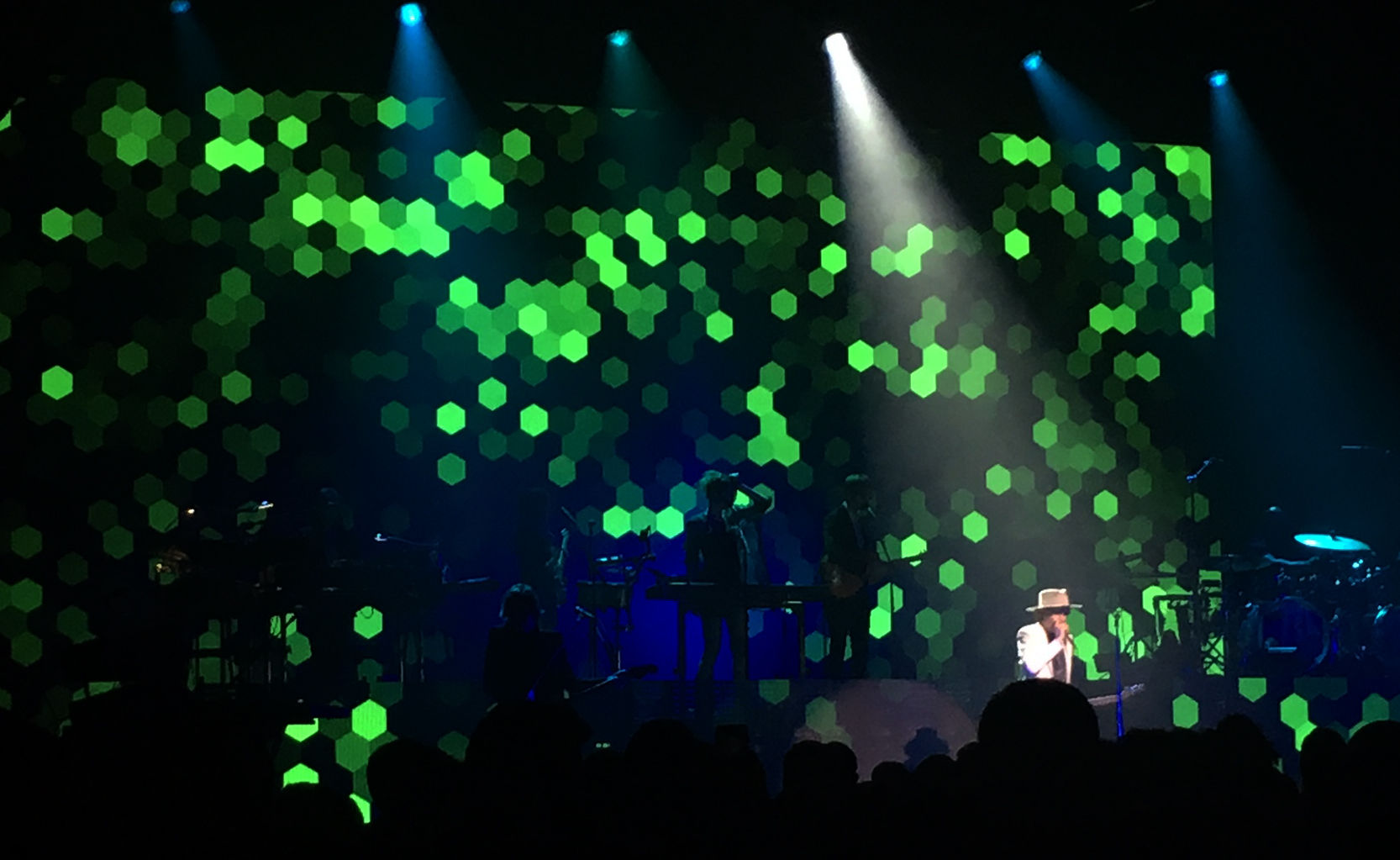
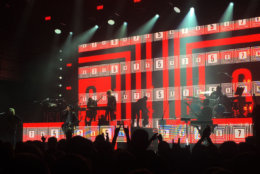
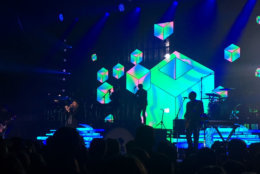
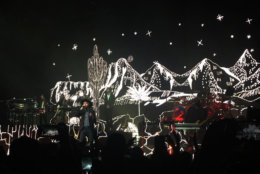
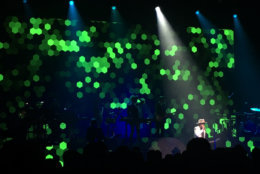
WASHINGTON — Beck’s career is, for my money, about the best argument against the existence of linear time.
His first — and, arguably, still — biggest hit, “Loser,” sounds more at home in today’s blended era of musical genres and styles than it did when Mellow Gold was released in 1994. It’s not that Beck hasn’t evolved as a musician — his albums have undoubtedly grown in complexity and textural layers as he has matured. But he doesn’t follow the ebbs and flows of popular trends as much as he cycles through his own musical experience.
His 2014 Grammy Album of the Year-winning Morning Phase was a companion piece to his 2002 release Sea Change, each slow, sad, introspective albums separated by a dozen years and three completely different LPs. Sea Change was Beck’s first record to land in the Billboard Top 200; every album since has done so, six in all, including his October 2017 release Colors.
The point is that a Beck concert in 2018 — again, assuming time isn’t simply a construct — could look like any number of things. It could be a full set of greatest hits, an entire acoustic show under a single spotlight, or even exclusively covers, of which Beck has recorded more than many artists have original songs in their careers.
So, of course, Beck opened Thursday night’s performance at The Anthem with three straight songs from albums released during the first Clinton administration. He adhered to the Rob Gordon mixtape rules to open his set list, starting strong with “Devils Haircut,” taking it up a notch with “Loser,” then cooling it down a bit with “New Pollution,” three oldies-but-goodies to set the tone.
It might as well have been the last Beck show I attended, 13 years ago, on the other side of the country. But rather than a giant boombox descending from the rafters, as happened as part of the act that night, there are colorful animations projected behind Beck and his collection of seven support musicians.
“It just feels like anything could happen right now,” he tells the mostly 30-plus crowd for the first of back-to-back shows on the Wharf this week.
There was surely some moment in time, linear or non, when Beck didn’t look the way he seemingly always has. Timeless, boyish, a blond mop tucked under some sort of hat. Thursday night that hat (fedora? bolero? don’t ask me, I’m not a hat expert) was black, the shirt beneath it a psychedelic, Starry Night-inspired navy pearl snap buttoned to the top button under a black blazer. He’s 47 years old now, if you’re the kind of person who counts such things; the more you consider how little that time seems to affect him, the less inclined you are to do so.
After those first three songs Beck nearly sheds the blazer, but thinks better of it as he jumps through recent and distant entries of his catalog. The first real break comes as he loses the hat, swaps his guitar for an acoustic, and croons through “Lost Cause,” then announces he’s going to play a few songs from “Morning Phase.” He only makes it through a couple, though — the bar for energy has been set too high to meander through a breakup album too comprehensively.
He sneaks in a couple covers, including a solid rendition of Prince’s “Raspberry Beret.” Among Beck’s many talents, perhaps his most impressive is the ability to build upon other artists’ work without distorting their essence. Many have tried, but none have matched his cover of Daniel Johnston’s “True Love Will Find You In The End.” And his version of The Korgis’ “Everybody’s Gotta Learn Sometime” at the end of “Eternal Sunshine of the Spotless Mind” remains one of the great emotional daggers of modern cinema.
But he can sense the crowd is ready to rock again.
“Let’s dance,” he says, launching into current singles “Dreams” and “Up All Night,” finishing the set with “Summer Girl,” a seamless leap back to 2005.
Where other musicians might take a lull in the middle of their show to introduce the members of their band, Beck waits not just until the end of the show, but for the actual encore. After two verses of “Where It’s At,” he veers off to go through his supporting cast, letting each one riff through a classic song from a different genre for the better part of a minute. He himself hops on the harmonica for the only time all night, and when he’s done, a nervous tension hangs in the air until he reminds the audience that yes, in fact, we are still mid-“Where It’s At.”
“Let’s get back to business … finish what we started,” he says.
And so he does, and so the show ends.
Somewhere, in a parallel universe, that interlude is still going, ad infinitum, each musician showcasing on 12-bar samples of every half-famous hit in the history of music. The rest of us will just have to wait for Beck’s next cycle through town.

